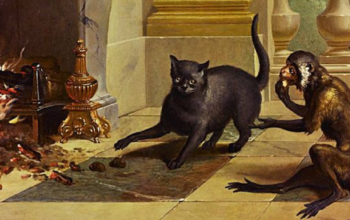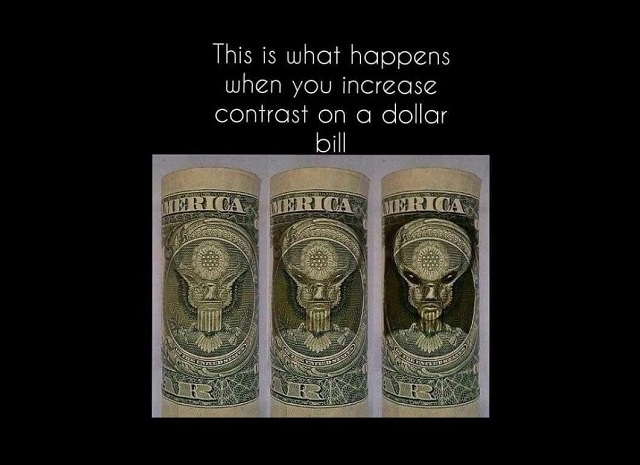
Over the past several weeks, Rush Limbaugh has led a cacophonous chorus of conservative complaint against Republican presidential nominee-to-be John McCain. This morning, the reigning king of talk radio kindly agreed to an interview over the phone with TIME’s Jay Carney, a member of another one of his frequent targets, the mainstream media. Afterwards, Limbaugh went on the air and told his 13 million listeners about the conversation. “Yes, I am talking to the enemy,” he said in his signature bellow (partly in jest, or so it sounded). “Just call me McCain today… I’m reaching across the aisle here and I’m talking to the enemy, that’s right. But I’m not going to agree with them, like McCain does.” Here is a transcript of the interview:
TIME: So I understand from listening to your show yesterday that your attacks against John McCain were all part of a secret plan. You are making yourself John McCain’s biggest helper by attacking him.
LIMBAUGH: Well, it’s not a secret plan. Look it, I’ve been fascinated, honestly Jay, with the attention paid to me by people who really have not undertaken to understand how I succeed, how I define my success. I don’t define my success by who wins elections, because politicians are going to come and go, and I’m going to be around as long as I choose to be. It just amazes me. So I thought I’d have some fun with this since there seems to be a narrative and a template in a lot of the media about talk radio and me in particular. I thought I’d throw a curve ball out there yesterday. And there is some truth to it, by the way. I do think if I really came out fervently, and passionately endorsed McCain, some of the independents and Democrats who were thinking about voting for him might be dissuaded by it simply because they have such a virulent dislike for me. But I threw it out just to have fun with all this, which is my primary objective every day.Is there anything John McCain can do to persuade you he’s acceptable?
I don’t think he should even try. He’s got to be who he is. I don’t think he needs to reach out. His job is not to be acceptable to a single person. I’m not sitting here demanding that. I don’t have that kind of sense of power or existence. That’s one of the things that sort of amuse me about all this. You know, he had Bob Dole send that letter. And Phil Gramm has called. Phil Gramm was in Davos. But Phil just [said], “Let me tell you why I’m for McCain.” Pure and simple. He didn’t persuade or arm twist. I don’t think Senator McCain ought to do anything but be who he is and let the chips fall. Because that’s his strength. And if he starts doing anything that appears to be pandering to people, then he’s going to lose, I think some — I don’t know, respect — but some people are going to question it. Because he’s never pandered. At least his image is that he’s never pandered. He’s a maverick. He’s out there on his own and he’s going to ride the trail wherever it takes him, in the direction he wants to go. I wouldn’t expect it.You know, when it comes down to a general election — looks like it’s going to be Obama versus McCain — any number of ways of playing this, and one of them, I don’t necessarily have to tout McCain, but I certainly will be critical of Obama. Once we get down to the general, you start examining what this guy’s policies are. Right now [Obama is] saying nothing better than anybody has ever said it. At least in my lifetime. It’s going have to get specific at some point.
I said this on the radio yesterday. I really do take all this seriously in terms of the future of the country and where we’re headed. And liberalism to me, based on its history, portends disastrous things for the future of the country. I think liberals in a political sense need to be defeated, not accommodated, not reached across the aisle and hugged, not walked across the aisle and accommodate them and bring them in. And I certainly don’t want the Republican Party to be redefined by becoming victorious on the basis of a bunch of liberal Democrats being attracted to the party as liberal Democrats. I’d love to have them if they are converted to our side. But we’re missing genuine conservative leadership, so that’s not going to happen.
I’ll have plenty to talk about. When Bush 41 was elected in ’88, people said, ‘Well, that’s it for Limbaugh; he’s going to have nothing to say.’ Well, Wrong! The liberals were out there starting with global warming. The spotted owl was going nuts back then. There are always going to be liberals to rail against no matter who’s in the White House.
You’ll be critical of the Democratic nominee. Will you continue to hold McCain’s feet to the fire as this goes forward?
Well, probably. But it’s not personal. I firmly believe that conservatism — genuinely articulated, passionately articulated — wins in national elections most every time it’s tried. I tell people, ‘Go back to the eighties.’ Ronald Reagan did not have talk radio or an alternative media supporting him. What was he down — in the House of Representatives — the Democrat margin then was what, 130 seats or something? And they [the Republicans] were led by a guy named Bob Michel whose objective every day was to make sure he was invited to play golf with Democrat leaders. And [Reagan] didn’t have the Senate for most of his eight [years]. Look what he did. He got his tax cuts through — a number of things. It can be done. We’re dealing, I think, with Pelosi and Reid, two of the most incompetent, ineffective Democrat leaders in my lifetime. Now the idea that we conservatives cannot go beat these people without having some of them join us as who they are — it offends the hell out of me. Conservatism, if you look at Reagan, that kind of leadership, it can happen. And so, yeah, I would love to try to be a force, of seeing to it that that’s part of a national Republican campaign — absolutely.What is it that the mainstream media don’t understand about your role and the role of conservative talk radio in general?
I don’t think they understand why I do it, number one. I treat it as a business. My definitions for success have nothing to do with who wins elections, but rather, Is the program growing audience-wise? Are we attracting new sponsors? Are those sponsors paying confiscatory rates? Are we able to charge confiscatory rates? Which we are. Are they getting results for their advertising? Yes they are. We’re sold out constantly, we’ve got a waiting list for people to get on. That’s how I define it.Now, in terms of the content, I just come here and I try to have fun every day. And I’m honest. I don’t say outrageous things I don’t believe just to get people in a tizzy. I have the benefit here of not having anybody tell me what I can or can’t say. It’s totally up to me. But I’m very serious about a lot of things. And so I get very passionate about those things, and I do so with honesty. But I also — it’s show biz, too. There’s a lot of radio out there. There’s a lot of TV. There’s a lot of competition. And you have to do certain things to cut through the noise. And that’s where the showbiz characteristics will surface, such as “Talent On Loan From God.” You know people think I’m saying I’m Christ, which I’m not. But it’s just these little signature things that sometimes rub people the wrong way or make them think that I’m an arrogant and pompous person. Those are just the showbiz things.
The second thing that the media doesn’t understand — and I think it’s because talk radio is outside the Beltway. It’s a phenomenon that attracts what I call the people who make the country work. I don’t think politicians and elected officials and bureaucrats and even the media are responsible for the greatness of the country. I think it’s individual Americans laboring in anonymity, not seeking fame, just trying to get by, play by the rules, work hard, ordinary people doing extraordinary things. And those are the people that listen to talk radio. And the media thinks that they’re all hayseeds and hicks without minds of their own. When in fact, they are totally independent thinkers. And most of my audience is there not because I have Pied Pipered them to where they believe. They already believed what they believe — I just came along and validated it. When I started in ’88, there was CNN, the three networks, your magazine and Newsweek and US News and the newspapers. That was it. I started in ’88 and I was the first so-called national voice espousing conservatism and people glommed onto it because finally, “Somebody who agrees with me!”
So the assumption is that people who listen to talk radio are idiots, or mindless robots, or victims of slick marketing and packaging. So there’s sort of a condescending view of the audience of talk radio, people are sometimes held in contempt by some people. It’s just totally wrong. It’s 180 degrees out of phase.
[It seems to me that] it’s a positive to have people listening to radio, listening to issues, talking about politics and policy. That’s about an informed public. That’s what is annoying about the condescension — it’s that anybody who is tuning into [talk radio], or watching cable, is more engaged than people who are watching game shows.
You are absolutely right. I’ve been doing radio for 20 years, and there’s still these gross and great misunderstandings of what I do, why I do it and how I do it, and I’ll get calls from people who are new listeners, and some of them will be critical: “Why are you trying to just continually make people mad. Why can’t you help people come together?” And I say, Look, what you do with your life and your thoughts is fine. All I’m interested in here is a more informed, educated, engaged, participatory public in matters of state. The more people that show up to vote informed, the more people that participate and get involved in these kinds of things who are informed and passionately engaged is better off for the country. So you nailed it. You’re exactly right.Why did the rallying behind Mitt Romney by talk radio not pull it off for him?
You see, candidates win or lose elections. Nobody who does what I do, nor can I, influence mass numbers of votes. We might be able to influence or inform people about things they didn’t know. But it’s up to candidates to get elected. It’s not my job to get them elected. And when they lose I don’t take it personally. And Romney was like every other candidate in our field, Jay. The reason why we’re in this mess is because not one of our candidates, from top to bottom, fully met or meets the three-legged stool of conservatism. You’ve got this foreign policy crowd, you’ve got the fiscal conservative/small government crowd, and you’ve got the social and cultural crowd. We didn’t have one candidate who wrapped them all up. As such, the conservative voter decided, Okay, this issue is more important to me — I’m going there. [And] this issue is more important to me, I’m going there. You’ve also got the Mormon thing; the media played that up. You have some people on the social side of the Republican Party [who are] just not going to vote for a Mormon, no matter what. Also, he had his flip-flop problems on abortion he had to talk about. I think he did a more persuasive job of convincing people he had genuinely changed his mind than other people had on some certain things.But I don’t think it would have made a difference. You know what turned… You know, Romney was up ten points in Florida until two things happened — until McCain started with this bulls–t about Romney being in favor of a timeline for withdrawal — he did that on a Saturday. And then [Florida Governor Charlie] Crist endorsed [McCain]. Those are political realities on the ground, and nobody in talk radio could do anything about that. Even if I had decided six months ago that Romney’s my guy and [I] had been pumping Romney… that stuff happens a couple days before the election and I guarantee you it’s going to have real effects with voters on the ground in Florida beyond what I do.
This thing about McCain and Romney — I know it’s politics. It’s what it is, and I don’t whine and complain about it. But I found it very interesting. It was a Saturday he made that claim. So it’s three days before the election. And Romney, because of McCain-Feingold, his groups could not go out and run ads countering what McCain had said. And I said, Maybe we need to add to McCain-Feingold and make sure that candidates can’t say anything 30 days before an election that’s not true about their opponents. So while McCain-Feingold prevented Romney, or Romney’s groups, from responding to it [with] TV ads, McCain was free to mouth off. A little irony.
What will it be like, because you’re a conservative and speak to an audience that tends to be conservative, if McCain wins the presidency? How will it be different for you having an incumbent president of the party that you tend to support whom you don’t see eye-to-eye with? How will that be different from when Bush Senior was president or George W? Will there be a difference?
Well, who can predict the future? I don’t plan these things. And I don’t. My show is event-driven. I’m sitting here today and I happen to know I’m going to lead today with the Democrats last night, I think. But most days, Jay, when this show starts at noon, and I’ve got my stuff in front [of me], I really don’t know what I’m going to start with. It’s almost all spontaneous.
You see, your question comes from, again, what I think is a mistaken template. You’re [asking], What is talk radio going to do if McCain wins and he’s sort of one of our guys but isn’t? Ah, we’ve had that with President Bush. I mean, go talk to President Bush about my attitude on illegal immigration. The thing about Bush that kept his people unified for the most part was the war, and what the Democrats were savaging him with, and trying to secure defeat, wrap it around his throat. That served to unify people who had disagreements with Bush on other things. Plus Bush is a likable guy. Now we’re still going to have a war and we’re still going to have terrorist threats and so forth. But this is what I fear, Jay. I have looked in the future. And you’re going to have probably a Congress with even larger Democrat majorities in the House and Senate. I mean, Pelosi’s out there saying that she thinks Obama can bring 75 new seats. Let’s say they have sizable increases in their voting majorities. You and I know that Presidents like to get things done, and they define getting things done in terms of legislation, and other things. Here we’re going have a guy, if he’s elected, who has made a practice of getting things done, not by reaching across the aisle, but walking across the aisle and sitting down with the Democrats. He is who he is. And so it looks like, we’re going to get a Democrat agenda regardless of who wins the presidency. And so arguing against liberalism and a Democrat agenda is always going to be on my plate, it’s always going to be the first thing out there regardless of who the president is. I mean, I don’t view myself as having to defend my President if he’s in my party. That’s not my job; that’s not how I go about it.


